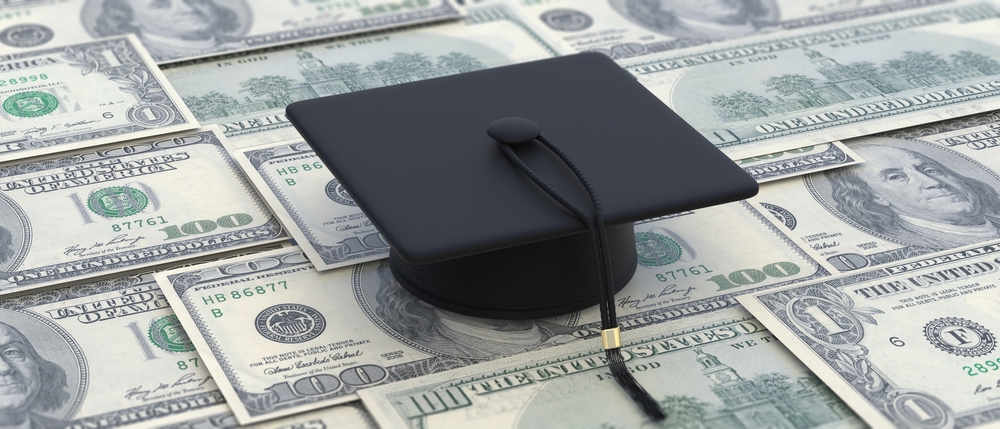You’re tired of juggling multiple debts and want a way out. Debt consolidation loans can simplify your financial life, combining debts into one loan with a single monthly payment, ideally lowering interest rates. This can bring relief and a sense of control. But, it’s essential to weigh the pros and cons. Consolidation can eliminate stress and save you money on interest, but it may lead to longer repayment periods and hidden fees. You need to understand the potential drawbacks and credit score implications. As you explore this option, you’ll discover the key to making it work for you, and what’s waiting ahead.
Key Takeaways
Debt consolidation loans combine multiple debts into one loan, simplifying payments and potentially reducing interest rates.
Consolidating debt can simplify financial life, eliminate stress, and free up more cash to pay off debt, but may have drawbacks.
Longer repayment periods, fees, and the risk of accumulating new debt are potential drawbacks to consolidating debt.
Timely payments are crucial, as missed payments or defaults can damage credit scores and limit future financial opportunities.
Researching and choosing the right lender is essential, as a reputable lender can help create a personalized debt repayment plan.
Understanding Debt Consolidation Loans
If you’re drowning in debt, you’re likely desperate for a lifeline, and debt consolidation loans might just be the rescue rope you’ve been grasping for.
You’re not alone in this struggle – millions of people are trapped in debt, feeling overwhelmed and anxious about their financial future. But here’s the thing: debt consolidation loans can be a game-changer.
Essentially, they allow you to combine multiple debts into one loan, simplifying your payments and (ideally) reducing your interest rates. This means you’ll only have to worry about one monthly payment, rather than juggling multiple debts with different due dates and interest rates.
By consolidating your debt, you’ll be able to breathe a sigh of relief, knowing exactly how much you need to pay each month and when. You’ll finally have a clear plan to tackle your debt, and that’s a powerful feeling.
Benefits of Consolidating Debt
By consolidating your debt, you’ll simplify your financial life, eliminate the stress of juggling multiple payments, and free up more of your hard-earned cash to tackle the principal balances. No more scrambling to remember multiple due dates or worrying about missed payments. With debt consolidation, you’ll have one loan, one payment, and one due date to keep track of. This means you’ll have more time and energy to focus on what really matters – paying off your debt and building a stronger financial future.
Consolidating your debt can also save you money on interest rates and fees. By combining multiple debts into one loan with a lower interest rate, you’ll pay less over time. This can be especially beneficial if you’re currently dealing with high-interest credit card debt or payday loans.
Plus, with a single loan, you’ll have a clear plan in place to pay off your debt, giving you a sense of control and confidence in your financial abilities. By consolidating your debt, you’re taking a crucial step towards financial freedom – and that’s something to feel good about.
Potential Drawbacks of Consolidation
While consolidating your debt can be a game-changer for your financial health, it’s not a silver bullet solution, and you need to be aware of the potential pitfalls that can arise.
You might think you’re getting a great deal, but sometimes consolidation loans can lead to longer repayment periods, which means you’ll be paying more in interest over time. This can be especially true if you’re consolidating high-interest debt into a longer-term loan with a lower interest rate.
You might also face fees associated with the consolidation loan, such as origination fees or closing costs. Additionally, if you’re not careful, you might end up accumulating new debt while paying off the consolidated loan.
It’s crucial to address the underlying spending habits that led to your debt in the first place. Make sure you’re not just treating the symptoms, but also working to change your financial habits.
Credit Score Impact and Risks
Your credit score is on the line when you consolidate debt, and it’s essential to understand that missed payments or defaults on consolidated loans can severely damage your credit report, plummeting your score and limiting future financial opportunities.
This isn’t just a warning; it’s a harsh reality that can haunt you for years to come. If you’re not careful, consolidation can turn into a financial nightmare, making it tougher to get loans, credit cards, or even an apartment in the future.
You must be vigilant about making timely payments and keeping your debt-to-income ratio in check. One misstep, and you’ll be stuck with a poor credit score, making it harder to rebuild your financial life.
It’s crucial to weigh the pros and cons carefully and consider seeking professional advice before making a move. Remember, debt consolidation is a tool, not a magic solution. Use it wisely, and you’ll be on your way to financial freedom. But misuse it, and you’ll be stuck in a cycle of debt and financial stress.
Choosing the Right Lender Matters
Now that you’re aware of the potential pitfalls of debt consolidation, it’s time to focus on finding a lender that can help you achieve financial freedom, not profit from your vulnerability. You deserve a lender that has your best interests at heart, not one that’s looking to make a quick buck off your struggles.
When researching lenders, don’t be afraid to dig deep. Read reviews, check online ratings, and ask around. You want a lender with a proven track record of helping people like you get back on their feet.
Look for transparency, clear communication, and a willingness to work with you to create a personalized plan.
Common Hidden Fees to Watch
Beware of lenders who bury hidden fees in the fine print, as these sneak attacks on your wallet can quickly add up and derail your debt consolidation progress. You’re already struggling with debt, and the last thing you need is a lender taking advantage of you. But don’t worry, being aware of these hidden fees is half the battle.
Origination fees, late payment fees, and loan maintenance fees are just a few examples of what you might encounter. Some lenders might even charge you for paying off your loan early!
It’s essential to carefully review the terms and conditions of your loan agreement before signing on the dotted line. Don’t be afraid to ask questions or negotiate with your lender if you’re unsure about any fees.
Alternatives to Consolidation Loans
If debt consolidation loans aren’t the right fit for you, you’ve got options – and exploring them might just be the key to breaking free from debt faster.
One alternative is the debt snowball method, where you prioritize paying off your smallest debts first. This approach can provide a psychological boost as you quickly eliminate smaller debts.
Another option is the debt avalanche method, where you tackle your debts with the highest interest rates first. This approach can save you the most money in interest over time.
You could also consider a balance transfer credit card, which allows you to consolidate your debt onto a single card with a lower or 0% interest rate. Just be aware of the balance transfer fee and the expiration date of the promotional rate.
Additionally, you might look into credit counseling services, which can provide personalized advice and debt management plans.
Whatever path you choose, remember that breaking free from debt takes time and discipline, but with the right strategy, you can get back on track and start building a stronger financial future.
Frequently Asked Questions
Can I Consolidate Debt With a Credit Score Below 600?
“You can consolidate debt with a credit score below 600, but be prepared for higher interest rates and stricter loan terms – it’s still worth exploring options, though, to get that debt under control!”
Will Debt Consolidation Loans Cover All Types of Debt?
“Hey, you’re wondering if debt consolidation loans cover all types of debt? Well, most loans cover credit cards, personal loans, and medical bills, but might not cover student loans, taxes, or utility bills – so it depends on your specific situation!”
Can I Consolidate Debt on My Own Without a Loan?
“Hey, yes, you can consolidate debt on your own without a loan! Create a budget, prioritize debts, and negotiate with creditors – you got this! Take control, stay disciplined, and celebrate your financial freedom!”
Are Debt Consolidation Loans Available for Self-Employed Individuals?
“Hey, self-employed individual! Yes, debt consolidation loans are available for you too! Lenders consider alternative income verification methods, like tax returns and bank statements, to approve your loan application.”
Can I Use a Debt Consolidation Loan to Pay off Student Loans?
You’re wondering if a debt consolidation loan can tackle your student loans? Yes, you can use it to pay off those pesky student loans, but beware – you’ll need to check the loan terms and interest rates carefully, okay?
Conclusion
You’ve got debt piling up and it’s time to take control. Don’t let creditors breathe down your neck – consider consolidating your debt into one manageable loan. Yes, there are pros and cons, but with the right lender, you can simplify your finances and start fresh.
Don’t wait – your financial freedom is at stake. Research, compare, and pick a reputable lender to get back on track. Every minute counts – take the first step towards a debt-free life today!



